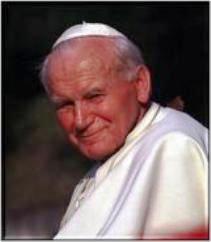
The leaders of the Democratic Party are not exactly excited about the race for the party’s presidential nomination. The warfare is not over and the end may not be for another six weeks with the primaries end in early June—or as late as August if no solution is found.
The president of the party, Howard Dean recently said that he opposes anyone asking Clinton to dropout. She has beaten Obama in the last three sizeable contests. He also called for superdelegates to commit to either Clinton or Obama as soon as the primaries are over so the candidate can be decided by the end of June lest they damage their chances of winning the White House in November.
The Tuesday night loss in Pennsylvania was a blow to the face for Obama, not enough to stop his lead, but enough, perhaps to give Hillary momentum. Hillary Clinton has now trumped the presidential campaign record set by Republican Rep. Ron Paul of Texas who raised $6 million in 24 hours. Clinton raised $10 million only 24 hours after defeating Obama.
The question now arising is not so much: why won’t Hillary just drop out? The new question isn't familiar too us: why can’t Obama just win? Doubt is shaking the faith of liberal and progressive voters who back the Illinois Senator. I honestly don't know what took them so long. Obama has lost every high-population state to Clinton except for his home state. If the Democrats were smart—in my opinion— they would back Sen. Hillary Rodham Clinton. Why? For starters, she won the two large traditionally “blue states” California and New York.
Secondly, she has won many of the predicted 2008 swing states such as Nevada, New Hampshire, New Mexico, and Arkansas. Arguably, she won Michigan—a swing state with a sizeable electoral vote—she won 55% of the votes and Obama supporters voted “uncommitted” earning 40% of the vote—it isn’t as if she pulled in 100% of the vote; as one of the country’s largest centers of manufacturing and labor unions, the state leans Democratic—should the Democrats ignore their votes, it could certainly be a red state come November and that is not in all in their favor.
But what is even more crucial are the “Big Three” swing states Pennsylvania, Ohio, and Florida that presidential candidates spend most of their time campaigning in. No candidate since Kennedy has won the presidency without winning two of these three states. Hillary beat Obama in all three of those states (by a double digit margin in all three). According to the most recent polling data, Hillary is predicted to beat McCain in all three. Obama would lose in two out of three, winning only Pennsylvania. Historically, no Republican candidate has won the White House without winning Ohio; indeed, the winner of Ohio has been the winner of every general election since 1960. Arguably, in a face-off between McCain and Obama, if history says anything, it favors John McCain.
Texas is considered a swing state in November. The polls show a statistical tie with Obama-McCain in Texas and Clinton just points behind McCain. Clinton beat Obama in the Texas primary. Reaching out to Hispanic voters, she could close the gap with the uncommitted voters in Texas and thus possibly win New York, California, Texas, Florida, Ohio, and Pennsylvania—more than likely securing the White House.
The growing anti-Obama sentiment among voters suggests a serious problem. 56% of Clinton supporters in North Carolina declare they won’t support Obama if he wins the nomination. A similar 32% in Pennsylvania—a swing state—will not support Obama and this is in a state where he already has a disadvantage to John McCain.
Obama opposed the Clinton offer to re-vote in Michigan and Florida. It seems that it is finally catching up with him. If Obama wins the nomination, Michigan and Florida are a sure lost for the Democrats for not having their votes counted.
Pennsylvania Governor recently said, “This is for me a no-brainer. If we're going to plan to win in November, we need to choose the candidate that has the greatest strength in the states that are necessary to get us the electoral votes we need.” He added, “I hope the superdelegates are paying attention.”
Hopefully, by the end of June, there will be a declared nominee for the Democratic Party. If the Democrats let this contest drag out until August, they will definitely cost themselves the 2008 Election. The only way I can see them not losing Michigan and Florida, carrying crucial swing states, and uniting the party behind sound leadership is to back Hillary Clinton.
Clinton’s victory in Pennsylvania for the moment has silenced serious talk that she should consider quitting. Despite an endorsement from Sen. Bob Casey, a pro-life and pro-second amendment rights Catholic, Obama lost 70% of Catholics to Clinton, 58% of Caucasian Protestants, and 62% of gun owners. Catholics made up roughly one-third of the vote of Pennsylvania.
The presidential candidate that has won the attracted the most Catholic voters, the majority of which is coined, "the Catholic vote," has won the presidency in eight of the last nine contests for this office; the one exception was Al Gore who won the "Catholic vote" but lost the electoral vote to George W. Bush. Catholics have quite a record and if any argument can be made, Clinton has trumped Obama the entire primary season on Catholic voters and history shows us, Catholics vote and the more you have on your side, the more you're likely to win.
From a simply objective standpoint, if they were smart, they would choose Hillary. But I don't believe they will and they will lose a third time to the GOP.
Thursday, April 24, 2008
The War for the Democratic Nomination
Posted by . Eric . 0 comments
Labels: Catholics, Democrats, Election 2008, politics
Election 2008 and Uninformed Voters
Despite this reality, in recent decades, a good election has less than half of registered voters. This may very well change this election season. We are witnessing a turning point in American history. The 2008 primary season has been unlike any in American history with record-breaking voter turnouts particularly in the Democratic primary.
The most evident question to this reality is simple: will there be effective change with simply voter turn-out? Sadly, the answer is not necessarily a 'yes.' The problem that Americans face is more elementary, but it is mind-bogglingly complex in this country.
The American political experiment is that of a a constitutional republican government. The government consists of three branches with a system of checks-and-balances and elected officials serve as representatives to those who elect them. The government is literally for the people. This isn't news to anyone.
The primary reason that there is a political crisis is not because the government is ‘too big.’ But rather, I think, it is because of political apathy. If the theory is, the American governing powers will serve the people and the people, in turn, neglect their duty in supervising elected representatives, it naturally follows that the theory will be turned on its head and the government will face corruption.
Political apathy has a detrimental effect upon American life. Politicians and special interest groups rely on political indifference for self-serving purposes. They use marketing slogans to create subjects that appeal to us and conceal real issues from consideration. Sen. Barack Obama is marketing the slogan ‘change’ knowing that every individual citizen will interpret that word differently—what sort of change is he talking about? It would actually be an inconvenience for him to be too specific. He also used the phrase ‘audacity of hope’ without mentioning the Born Alive Infants Protection Act, in which, he voted against and held off of the Illinois Senate floor. Surely, one might argue he should have an audacity of hope, if he has only been a senator for two years and has the audacity to run for president.
When popularity is pitted against responsibility, popularity more than likely will attract the most votes while responsibility will win informed-votes. The idea of finding ‘common ground’ on divisive moral issues sounds nice; however, if we don’t watch the supposed ‘common ground’ legislation, it may in fact be one-sided. We shouldn’t sell our votes or our conscience on words.
In the same way, we pour money into worthwhile causes. Later, we will consider more causes and additional funding for already established worthwhile causes short on money. This can be a problem. We support federal funding for education that is distributed to the states and districts complying with federal standards. We never considered a similar (and perhaps more effective) system where the state decides its educational standards under the umbrella of specific universal national standards, where education is funded on the tax dollars of the individual state with the possibility of states with more rural settings and smaller economies to appeal for federal funding for further assistance, e.g. Missouri appealing for more funds while Texas funds itself.
By accepting everything that sounds good (in the present) instead of what is good and will likely continue to work (that which is responsible), we actually perpetuate problems as bureaucracy erodes more of the pie for itself at the greater cost to the taxpayer. Children are adorable, children are the future, and children are worth the sacrifice. But if we truly cared, we would establish a system that works. That’s the point.
Other terrible practices are allowed. We buy into illusionary security at the sacrifice of liberty. Intellectually, we accept that we must one day die, but that reality is difficult to come to terms with emotionally. We sacrifice liberty with the fear that not doing so is to risk our own lives and the lives of our loved ones. But further intellectual reflection doesn’t necessarily lead us to the same conclusion. We enacted a law (long-term effect) for the sake of instant-gratification, a right-now sense of security and comfort. Was that the most prudent of decisions?
Ultimately, political apathy is destroying this country. The same people who are quick to complain about taxes, traffic, bureaucratic waste, war, are the same people that will sit at home watching Don’t Forget the Lyrics! instead of voting. This same line of thinking has become a cancer in the pro-life community. Pro-life citizens wait for a candidate to say those magical words, “I’m pro-life” and they go and vote for the candidate. Hasn’t it occurred to you that someone has figured out by now that by using those words they can have a monopoly on an entire block of voters consistently every election season? Look at their voting record, look at their rhetoric. We had a Republican-majority Congress (Congress can end abortion) and not one right-to-life bill was put on the floor despite several fetus-personhood bills were written. Are they using you or do they want to end abortion? Write your legislators. Reprehend politicians. This won’t end unless we do something.
The American people in addition to being unengaged, most are also uninformed or misinformed about the issues to. We need to take the time to vote, watch debates, research, look up voting records—look into history and see what these people are about—we are called to engage in the democratic process. We have to look beyond the tendencies of the media to focus on personalities rather than issues. The news cultivates uninformed voters, it does not give much attention to the candidates’ voting recording or their stances on the issues, but rather makes a hype out of ‘controversial statements’ often quoted out of context.
What is the result? Election coverage becomes a melodramatic horse race for office. This is why we have, perhaps, the worst selection of candidates in American history. Apathy for casting votes has changed the outcome of elections, including Presidential elections. However, apathy for understanding issues and candidates by casting votes based on irrelevant factors like marketing slogans, name familiarity, and party also negatively affects democracy, and likely to a greater degree. Dumb politicians are elected by dumb people. Get involved. Research. Engage in the political process. Vote!
Posted by . Eric . 0 comments
Labels: American culture, Election 2008, political apathy, voting
Tuesday, April 22, 2008
"It's Time for Change" says Barack Obama
 Texas State Sen. Kirk Watson, a Democrat, endorsed Barack Obama for President of the United States. He believes that Barack Obama can and will produce change as president. However, on national television, he could not name any legislative accomplishments (in other words, change) that Obama has produced as a U.S. Senator. But we should support Obama on the word 'change'?
Texas State Sen. Kirk Watson, a Democrat, endorsed Barack Obama for President of the United States. He believes that Barack Obama can and will produce change as president. However, on national television, he could not name any legislative accomplishments (in other words, change) that Obama has produced as a U.S. Senator. But we should support Obama on the word 'change'?
Obama endorsed by Texas Senator Kirk Watson
Posted by . Eric . 1 comments
Labels: Barack Obama
Ann Coulter 'endorses' Hillary Clinton
 Ann Coulter, author of If Democrats Had Any Brains, They'd Be Republicans is quite a character. She is hated by liberals and loved by many conservatives. Despite her controversial and divisive nature, I personally think she is hilarious.
Ann Coulter, author of If Democrats Had Any Brains, They'd Be Republicans is quite a character. She is hated by liberals and loved by many conservatives. Despite her controversial and divisive nature, I personally think she is hilarious.
For months now, she has claimed that she will back Hillary Clinton for President if John McCain wins the Republican nomination. Time went by and he did in fact win the Republican primary. She still seems to be sticking to Hillary (who she compared to Joseph Stalin and then apologized to his descendants for the comparison of Stalin to such an evil woman).
Strikingly, Coulter is serious about this. There are several videos online about her disdain for McCain and reluctant support of Hillary Clinton. I think it's humorous and insightful (she raises some good points while she is at it).
Coulter "endorses" Clinton:
http://www.youtube.com/watch?v=Q3DjgvBLUvk&feature=related
http://www.youtube.com/watch?v=_2Be5KMg__Ahttp://www.youtube.com/watch?v=R3zNEyAKsP8
http://www.youtube.com/watch?v=xX-0iNVYs2o&feature=related
Posted by . Eric . 0 comments
Labels: Ann Coulter, Hillary Clinton
Hillary Clinton: The "Disloyal" Democrat
Some of my devout Democrat friends have been criticizing Hillary Clinton lately for her "disloyalty." Supposedly, she has been "advocating" John McCain over Barack Obama. They cite for their evidence that a now 56% of Hillary Clinton supporters in North Carolina say they won't support Obama if he wins the nomination. This is 11% more than just last month. North Carolina is the next big primary and Obama has a tremendous lead over Clinton.
But it's not just that, in the news and in debates, she often mocks Obama for his lack of experience and idealistic nature. She makes it appear as if he is "not capable" to be president and this allows independent voters to be won over by McCain.
What's the point? I agree with her. He is running on the word change while millions of American translate that one word millions of different ways. He says that he will bring about change that we can believe in but who believes in his claim that he will achieve universal healthcare in his first term? He preaches an audacity of hope. But doesn't he have to? He has only been in the United States Senate for two years and he has the audacity to run for president?
Many of my friends who are Democrats unfortunately support Barack Obama. I voted for Hillary Clinton in the Texas Primary. Actually, I voted against Barack Obama not so much for Hillary Clinton. Luckily, she won Texas, Ohio, and Rhode Island to save her election bid. Hopefully she will in Pennsylvania tonight and show the Democrats that Obama is not the answer. She won Florida (everyone's names were on the ballot and Obama ran TV-ads), she won Ohio, she's leading in Pennsylvania. She can carry swing states.
But how despite her not so appealing personality has Mrs. Clinton kept herself in the primary so long? I have uncovered it (and it is amusing).
The Sen. McCain/Sen. Clinton Ad
Posted by . Eric . 0 comments
Labels: Democrats, Election 2008, Hillary Clinton, John McCain
Pro-life Democrat helps Obama in Pennsylvania
 The Pennsylvania Primary is today. Hillary Clinton is leading in the polls, but the margin has closed in over the last few weeks. I feel that Sen. Bob Casey, Jr. made a dreadful mistake last month that has directly affected this contest. He endorsed Barack Obama for President of the United States.
The Pennsylvania Primary is today. Hillary Clinton is leading in the polls, but the margin has closed in over the last few weeks. I feel that Sen. Bob Casey, Jr. made a dreadful mistake last month that has directly affected this contest. He endorsed Barack Obama for President of the United States.
For a variety of reasons I do not support Barack Obama. In the presence of proportionate reasons, which I do think there may be some, I would consider a vote for Obama. But I highly doubt that the circumstances will arise in which I may choose to do so. I once said, I would take either candidate if Bob Casey, Jr. was their vice presidential running mate. But, even then, I couldn’t consent; it is unlikely with Hillary since he endorsed her opponent and not so likely with Obama because of remarkable differences in their abortion stances.
I think this tragic move invokes an old tale of the late Bob Casey, Sr., the last great national pro-life Democrat, who was denied a speech at the 1992 Democratic Convention because he wanted to deliver an anti-abortion speech. Naturally, Casey would not support Clinton.
But given our two choices left in the primary, I do support Hillary Clinton. It is unfortunate, a Democrat I truly admire does not agree me and he has hurt his image in the process of that disagreement. He could have remained silent and not have endorsed anyone. This move has had a polarizing effect for Casey in the pro-life community. A Roman Catholic endorsing the most left-leaning candidate in this entire election—a candidate who when asked his greatest regret as a senator and his reply is "voting not to euthanize Terry Schiavo"—looks really bad.
In fact, the idea of a pro-life Democrat is already becoming such a ridiculous assertion in America that apologetics for our political position is becoming so essential to everyday life. All of us now will have to pay for what Casey did. His predessor Sen. Sentorum, praised as one of the most pro-life Republicans, endorsed Sen. Specter and his dubious pro-life credentials over a manifestly pro-life candidate. This wasn’t criticized nearly as much as Casey’s move. This bias is unfortunate. But either way, it doesn’t change how terrible both decisions were.
Sen. Casey probably supports Barack Obama for what he considers to be "proportionate reasons." I don't condemn him for that. (I’ll eventually get around to talking about my personal issue with Republicans and the course of the pro-life movement). To vote for Obama in spite of not because of his pro-choice views in the general election (should he win the primary) is one thing, other Catholics might disagree with him, but we may understand Casey’s viewpoint. But to endorse Obama and actively campaign on his behalf as a public figure—as a Catholic, as someone who ran for office as a pro-life candidate—is entirely another matter.
To be sure, Casey did not endorse Barack Obama because he is pro-choice. I don’t think either Casey or Kmiec (a Catholic conservative who also endorsed Obama) have abandoned the pro-life movement. They could be convinced (rightly or wrongly) that the unification of this country is a means to an end of abortion. It isn’t as if Republicans have made ending abortion near the priority they have assigned to the War on Terror. How many speeches have we heard in the past seven years aimed at persuading us of the need to combat terrorism and defending the conservative stance? Countless. How many speeches have we heard using scientific facts, moral arguments, and political practicality for defense and dignity of unborn human life? Nowhere near as many.
Either way, the ‘consistent ethic of life’ is becoming a joke in politics. Democrats downplay abortion and over exaggerate everything else as life issues (they are) but the moral weight of those issues are not at the same level as abortion. On the other side, Republican politicians win elections off of the abortion issue alone and pro-lifers give a mindless stamp of approval to their policies often blind to the fact that there other positions might in fact be perpetuating the holocaust of the unborn and not pro-life at all, e.g. the war in Iraq.
We need to get our priorities straight.
Pennsylvania Senator, Sen. Bob Casey, Jr. (D) endorses Barack Obama.
Posted by . Eric . 0 comments
Labels: Barack Obama, Bob Casey, Democrats, pro-life movement
Roman Catholics in the American Political Process
 Better Citizens, More Faithful Catholics
Better Citizens, More Faithful Catholics
ARCHBISHOP CHARLES CHAPUT
10. The heart of truly faithful citizenship is this: We’re better citizens when we’re more faithful Catholics. The more authentically Catholic we are in our lives, choices, actions and convictions, the more truly we will contribute to the moral and political life of our nation.
Posted by . Eric . 0 comments
Labels: abortion, Catholic Social Teaching, Election 2008, politics, pro-life movement, social justice
This Catholic Loves Benedict XVI

Knights of Columbus: Champions for the Family

The Pro-Life Movement in the Democratic Party



































